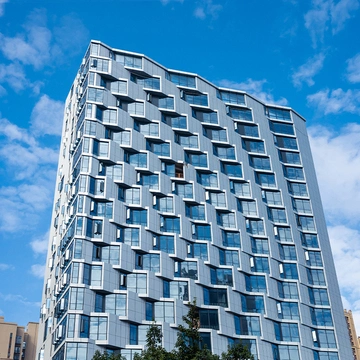PRANCE is an innovative organization that focuses on promoting sustainable architecture through the use of advanced materials. Sustainable architecture aims to reduce the environmental impact of buildings while enhancing their functionality and aesthetic appeal. PRANCE plays a crucial role in this movement by advocating for the use of aluminum ceiling, which offer numerous benefits in the construction industry.
The Importance of Sustainable Materials
Sustainable materials are essential in reducing the carbon footprint of buildings. They contribute to energy efficiency, waste reduction, and the overall health of the environment. By utilizing materials that are recyclable and have a lower environmental impact, architects and builders can create structures that are not only beautiful but also responsible. Aluminum is one such material that aligns perfectly with these sustainability goals.

Aluminum: A Versatile Building Material
Aluminum is known for its versatility in construction. It can be used in various applications, including windows, doors, roofing, and structural components. Its lightweight nature makes it easy to handle and install, reducing labor costs and construction time. Additionally, aluminum can be molded into different shapes and sizes, allowing architects to explore creative designs without compromising structural integrity.
Energy Efficiency and Insulation
One of the significant benefits of aluminum in sustainable architecture is its energy efficiency. Aluminum frames can be designed with thermal breaks, which help to minimize heat transfer. This feature enhances insulation, reducing the need for heating and cooling systems. As a result, buildings constructed with aluminum materials can achieve lower energy consumption, leading to reduced utility bills and a smaller carbon footprint.
Durability and Longevity
Aluminum is highly durable and resistant to corrosion, making it an ideal material for various climates. Unlike wood, which can rot or warp over time, aluminum maintains its structural integrity for decades. This longevity means that buildings require less frequent repairs and replacements, further contributing to sustainability. By choosing aluminum, architects can ensure that their designs stand the test of time.
Recyclability of Aluminum
One of the most significant advantages of aluminum is its recyclability. Aluminum can be recycled indefinitely without losing its properties. This characteristic makes it a sustainable choice for construction, as it reduces the demand for new raw materials. PRANCE emphasizes the importance of using recycled aluminum in architecture, which not only conserves natural resources but also reduces energy consumption associated with the production of new aluminum.
Aesthetic Appeal of Aluminum
In addition to its functional benefits, aluminum offers aesthetic advantages. It can be finished in various colors and textures, allowing architects to create visually appealing designs. The sleek and modern look of aluminum complements contemporary architectural styles, making it a popular choice among designers. PRANCE encourages the use of aluminum not only for its sustainability but also for its ability to enhance the beauty of buildings.

Cost-Effectiveness of Aluminum
While the initial cost of aluminum may be higher than some traditional materials, its long-term benefits often outweigh these expenses. The durability and low maintenance requirements of aluminum lead to cost savings over time. Additionally, the energy efficiency of aluminum buildings can result in significant savings on energy bills. PRANCE advocates for considering the total lifecycle costs of materials, highlighting aluminum as a cost-effective choice in sustainable architecture.
Conclusion: PRANCE’s Commitment to Sustainable Architecture
PRANCE is dedicated to promoting sustainable architecture through the use of aluminum materials. By highlighting the benefits of aluminum, including its versatility, energy efficiency, durability, recyclability, aesthetic appeal, and cost-effectiveness, PRANCE aims to inspire architects and builders to make responsible choices. As the construction industry continues to evolve, the role of organizations like PRANCE is vital in shaping a sustainable future
